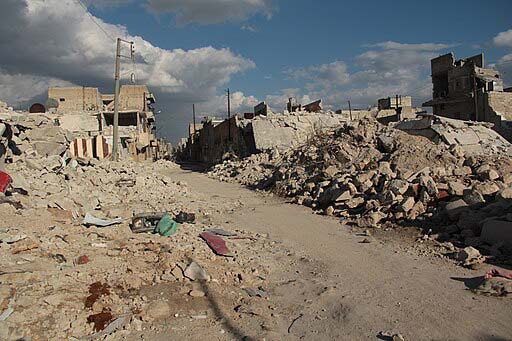There was jubilation this week when the widely detested regime of President Assad was swiftly and unexpectedly toppled by an alliance of Islamist rebel groups.
Bible readers have noted a remarkable echo of a prophecy of Jeremiah: ‘Hamath and Arpad are confounded, for they have heard bad news; they melt in fear, they are troubled like the sea that cannot be quiet. Damascus has become feeble, she turned to flee, and panic seized her; anguish and sorrows have taken hold of her, as of a woman in labor’ (Jeremiah 49:23-24). Hamath is modern-day Homs. Arpad is modern-day Aleppo. These were the scenes of two key battles in the rebels’ advance on Damascus. Whilst this prophecy had an initial fulfilment in the Babylonian invasion of Jeremiah’s day, could it be that we’ve just seen it fulfilled again?
The leader of the offensive, and now the de facto head of the Syrian government, is Abu Mohammad al-Julani. He was a one-time Al-Qaeda jihadist, but appears now to be adopting a more moderate outlook. He has expressed a desire to ‘normalise’ his country – to engage with the Syrian people, extend a hand to his political opposition, and revitalise diplomatic links abroad.
Experience of revolutions in the Middle East has shown that it’s very difficult to anticipate the direction new regimes will take. The world watches, uncertainly. We can’t forecast what will happen next. But here are two more prophecies which directly concern Syria.
Psalm 83 describes an attack on Israel by its neighbours. It’s a scenario which has never yet happened, therefore must still be future. If we plot the ancient nations on a modern map we can identify Jordan (Edom, Ishmael, Moab and Ammon), Lebanon (Gebal and the inhabitants of Tyre), Gaza (Philistia), eastern Egypt (Amalek) and southern Syria (the Hagrites), assisted by Assyria (the region of Turkey and Iraq). The Psalm doesn’t tell us the outcome, but it culminates in a plea to God to deal with the invasion.
Isaiah 17 foretells that Damascus (the Syrian capital) will cease to be a city and become a heap of ruins (vs. 1-2). This has never yet happened – Damascus is actually the oldest continually inhabited city in the world. At the same time, Israel will be seriously weakened (vs. 4-6). Verse 7 continues: ‘In that day man will look to his Maker, and his eyes will look on the Holy One of Israel.’ Could this be the moment of the return of Christ?
Chris Parkin
Picture credit: English Foreign and Commonwealth Office, OGL v1.0OGL v1.0


